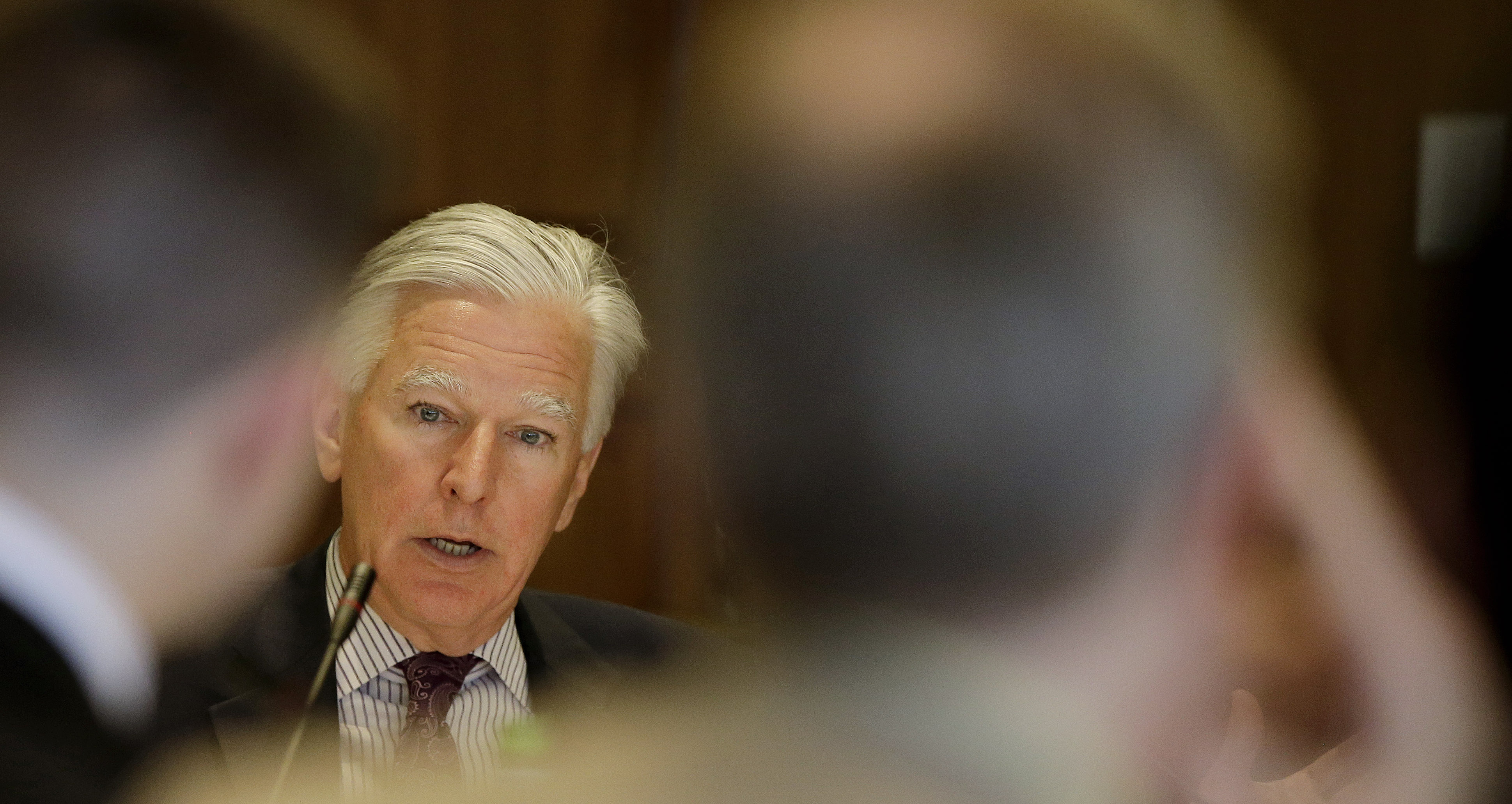
University of Massachusetts President Marty Meehan says low-interest loans are critical to students who can't cover the cost of college. (Stephen Savoia/AP)
For decades, the Perkins Loan program has helped poor students pay for college. But without Congressional action, the country's oldest federal student loan program could end this week, affecting thousands of low-income students.
Republican leaders in Washington say extending the Perkins Loan program is too costly and doesn't benefit students. In a statement, Senate Education Committee Chairman Lamar Alexander said the $1 billion program is "outdated and unnecessary."
University of Massachusetts President and former Democratic congressman Marty Meehan strongly disagrees. At UMass, more than 2,800 in-state students received nearly $6 million from the federal program last year.
"This is a program that people in Massachusetts rely on," says Meehan, adding the low-interest loans are critical to students who can't cover the costs.
"I don’t see how at the end of the day the federal government can walk away from their responsibility to making sure we have accessible, world-class education available to everyone," Meehan said.
In a statement, U.S. Secretary of Education Arne Duncan said the Perkins Loans program is "an important campus-based financing tool to help lower and middle income students cover any remaining need after other aid has been applied."
Nationwide, about four percent of full-time college students receive Perkins loans. Duncan challenged Congress to redesign the program and make it "larger, better targeted and more effective at helping students and families attend schools that offer a quality and affordable education."
If Congress doesn't act, the program will expire at the end of the fiscal year on Wednesday.
UPDATE: On Monday afternoon, the U.S. House of Representatives passed a one-year extension of the Perkins Loan program. A bi-partisan group of representatives sent a letter to Senate leaders, urging them to pass a companion bill before Wednesday's deadline. They didn't.
"It's going to be a problem. It's going to be a very big problem," said Jon Fansmith, director of government relations with the American Council on Education, which represents more than 1,800 colleges and universities.
Fansmith says the Perkins Loan program is a lifeline for poor students.
"The students who are borrowing on Perkins generally are borrowing because they've maxed out what they can borrow," Fansmith says.
And those students will have to find aid from another source, which means going into the more expensive private lending market.










